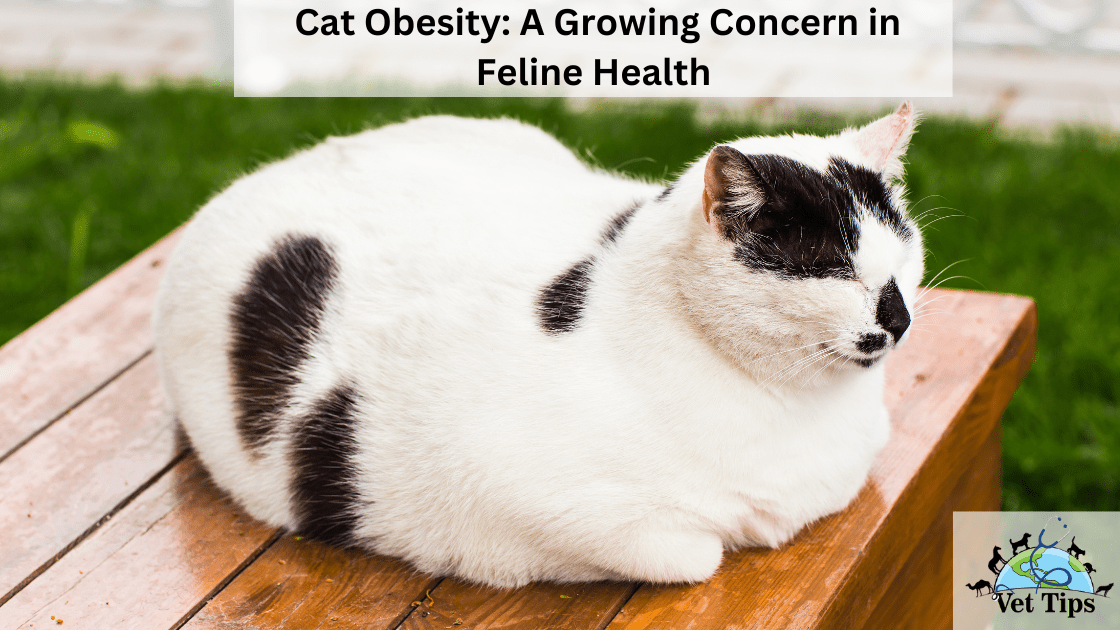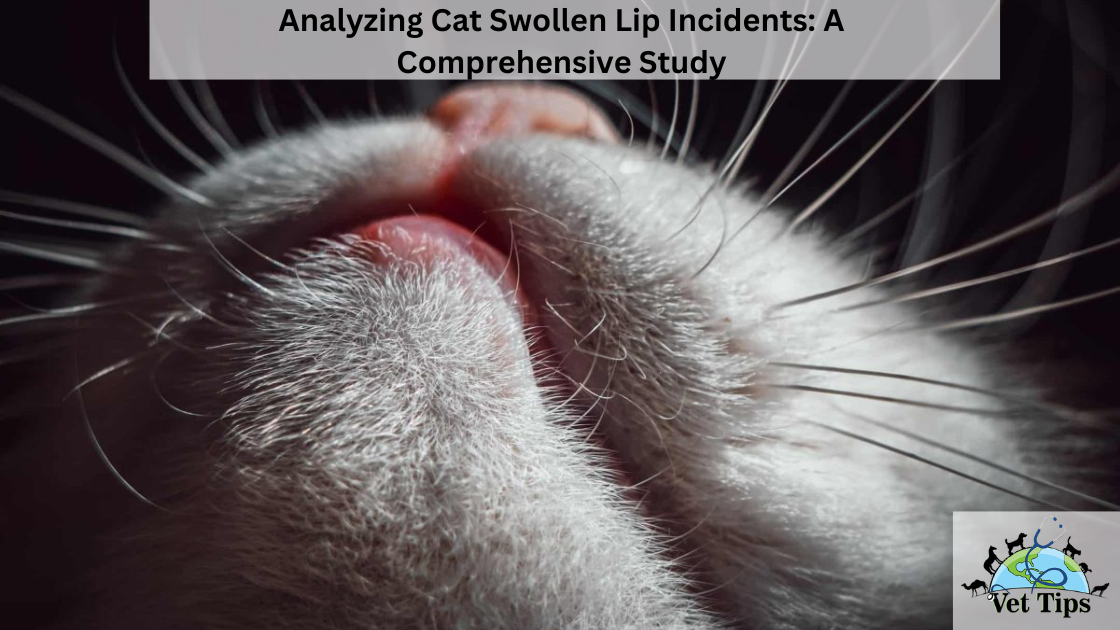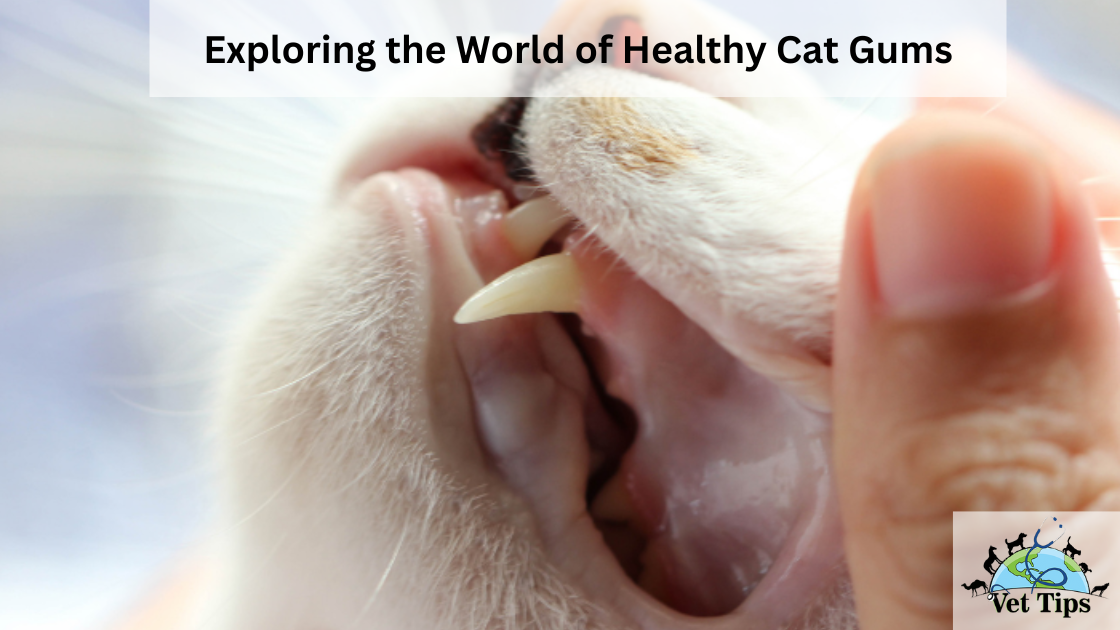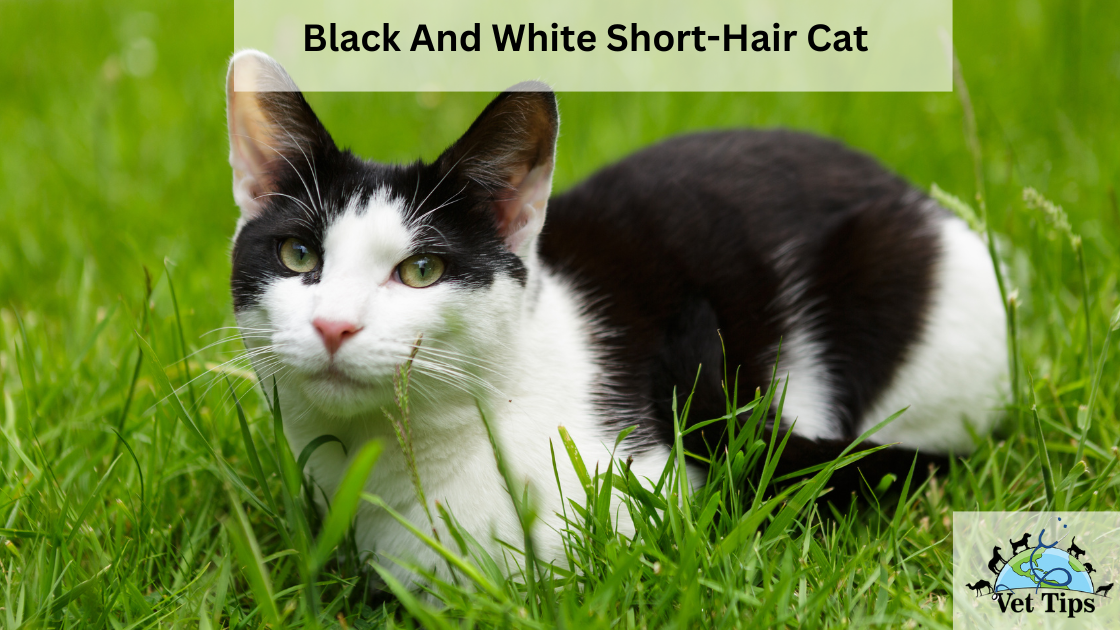As any cat lover knows, our feline friends bring joy, companionship, and a healthy dose of mischief into our lives. However, a concerning trend is on the rise – cat obesity. Just like humans, cats can struggle with excess weight, leading to a range of health issues. In this article, we’ll dive into the world of cat obesity, exploring its causes, consequences, and how we can ensure our fluffy companions lead healthy, happy lives.
Cat Obesity
Excess fat in a cat’s body can have significant negative consequences for its everyday health and longevity. In order to avoid a reduction in life expectancy as well as substantial health problems, you must talk with your veterinarian if you see that your cat has gained an excessive amount of weight.
Cats may be considered overweight or obese if they weigh between 10 and 20% more than their recommended weight for their age and breed. The majority of obese cats have an excessive amount of fat accumulation on their bodies. Also, obesity is the most common nutritional issue discovered in domestic cats; it is likely one of the easiest things to observe and recognize. In North America alone, it has been found that approximately 25-35 percent of the general feline population is overweight or obese.
What is the best way to tell if my cat is overweight?
Since images of obese cats in the media are so prevalent these days, it may be challenging to determine whether your cat’s body weight is considered “normal” or “healthy.” According to the American Cat Association, domestic cats should weigh around 9 – 10 pounds (4.0 – 4.4 kg) on average. However, keep in mind that the appropriate weight for your cat is determined by several factors, including its age and breed.
Consult your veterinarian to discover your cat’s optimal weight and whether they are currently considered underweight, average weight, overweight, or obese.
Symptoms of obesity in cats
As a first step in dealing with a feline obesity problem, it is critical to recognize the indicators that suggest your cat is indeed highly overweight. Given that cats come in various sizes and forms, this can be a complex undertaking, and weight alone may not be a thorough indicator of obesity in cats. Your veterinarian can assist you in assessing whether or not your cat exhibits any of the indicators of obesity that are commonly observed in cats:
- The ribs or spine cannot be felt with the palms of the hands.
- On either side of the base of the tail, there is a visible protrusion (fat).
- When gazing at the cat from above, there is no prominent waistline.
Obesity causes in cats
If your feline companion has become overweight or obese, you may be wondering how this has happened to him. Keep in mind that there is no reason to feel guilty. Even when we have the best of intentions, things can go away. After that, you can begin investigating possible causes.
Overfeeding, a lack of activity, old age, and a slowed metabolism are all factors that can contribute to feline obesity, just as they do in people.
Weight gain can occur whenever the number of calories taken exceeds the number of calories burnt. Excess energy(carbs) is converted into fat and stored in the body.
We’ve listed some of the most common reasons for cat weight gain in the section below:
1. Nutrition and Feeding
When cats grow overweight, their diet and feeding habits frequently play a significant influence. Diets heavy in carbohydrates and fats, rather than protein, have been shown to cause weight gain in particular. Cats would naturally consume a high-protein diet consisting primarily of meat if they lived in the wild.
Another factor to consider is free feeding, which is defined as allowing a cat to eat at any time of day by leaving a bowl of dry food out for them to eat from. Dry cat food frequently contains a high concentration of carbohydrates and fat, which might cause your cat to gain weight. Free feeding is one of the most significant contributors to feline obesity.
Just as humans who nibble throughout the day are more prone to gain weight, our feline companions are also more likely to gain weight. This is especially true for cats who are also confined to their homes, which explains why cats gain weight: stress and boredom.
2. The level of activity and exercise
It is critical for the health of cats, dogs, and humans alike to engage in moderate physical activity regularly. Cats in the wild get a significant amount of physical exercise every day by collecting and hunting prey, roaming their area, and engaging in playful interactions with other friendly creatures.
Indoor cats, on the other hand, are deprived of such possibilities. Eventually, their physical activity will not be sufficient to burn off a good fraction of the calories they consume in a single day. To prevent obesity in your cat, it’s critical to ensure that your cat gets plenty of physical activity daily.
3. Additional Factors
Multiple other factors may play a role in cat weight gain, including:
- Breed: Some purebred cat variations are less prone to be overweight than their mixed-breed counterparts, depending on their genetic makeup.
- Neutered status: Neutering a cat can result in a reduction in the biological activity level of the kitty.
- Age: Older kitties are more likely to gain weight than younger cats due to their increased metabolic rate.
- Medications: Weight gain can be caused by various medicines, including those that influence appetite or metabolic rate.
- Genetics: Some cats may be susceptible to gaining weight as a result of their genetic makeup.
Understanding the underlying causes of your cat’s obesity will assist you in developing a more effective weight-loss strategy in collaboration with your pet’s medical expert.
Diagnosis of obesity in cats
To determine whether or not your kitty is obese, your veterinarian will do a thorough physical examination to ensure that your cat is genuinely overweight. Weight criteria for cats of different breeds and ages are expected to differ; thus, your cat must undergo a professional examination in order to determine whether or not it is suffering from obesity. The veterinarian will use a bodily condition score system scale to assess the patient’s health. This scale rates the cat on a scale of 1-5 (3 being average) or 1-9 (very abnormal) (4.5 is normal). A score of 1 indicates that a cat is exceedingly thin, whereas a score of 5 or 9 (depending on the scale used) indicates that a cat is obese or overweight.
In addition, your veterinarian may prescribe that your cat undergo diagnostic tests. This testing includes blood work to rule out medical disorders such as an underactive thyroid, which could be the source of the weight increase. Additionally, you must inform the veterinarian of any drugs your cat may be on that may be contributing to his or her weight increase, as well as providing a complete account of your cat’s eating habits.
Consequences of having an overweight cat
Obese cats are at high risk for a variety of medical disorders and health risks. As a starting point, overweight cats are more likely to live shorter lives than their healthy-weight counterparts – and they are also more likely to suffer from a greater variety of potential health issues.
In overweight cats, excess feline weight and obesity can result in the following conditions:
- heart disease
- diabetes mellitus
- breathing problems
- arthritis
- high blood pressure
- joint stress and injuries such as hip dysplasia
- dystocia
- decreased immune function
- urinary tract disease
- cancer
- hepatic lipidosis
As a result, obesity in cats is not something to be taken lightly. Consult with your veterinarian to discover which weight-loss methods are most appropriate for your feline.
What is causing my overweight cat to wheeze or snore?
If your cat is overweight, the likelihood of them wheezing or snoring increases significantly due to an accumulation of extra fat in the tissues around the cat’s airways. Waking up your cat wheezing or snoring could signal the presence of another significant health problem, such as upper respiratory infections, asthma, or heart or lung disease. Consult your veterinarian if you observe your overweight cat snoring or wheezing abnormally loudly.
Practical Solutions of Obesity in Cats
Following a discussion about the nature of your cat’s obesity, your veterinarian will devise an appropriate treatment plan for your cat. No matter what is stated, your cat must be closely followed by a veterinarian because losing weight too quickly might have severe consequences for his or her health. It is possible to develop a life-threatening illness known as hepatic lipidosis (fatty liver). Therefore, before commencing any treatment plan, ensure that your cat is under the proper supervision of a qualified veterinarian.
· Diet
Diet is the best obesity treatment, especially in children. Your veterinarian will enroll your cat in a weight-loss program that will keep track of both their weight and their food consumption. This procedure will be aided by the use of certain dietary supplements that your veterinarian can discuss with you. But it’s also essential to keep in mind that reducing the amount of food consumed too quickly can lead to malnutrition in the long run. Everything should be accomplished in a controlled and steady manner.
· Medication
If your veterinarian determines that a particular medicine is causing your dog’s obesity, he or she will discuss options for modifying or discontinuing its use. Additionally, if a medical ailment has been detected, such as hypothyroidism, your veterinarian may be able to treat it with medication, which can aid in the resolution of obesity.
· Exercise
Encourage your cat to become more active to aid with weight reduction. You can employ interactive toys to keep kids on their feet and actively engaged in the activity you are facilitating. Additionally, increasing the frequency with which the catwalks through the house to retrieve things (for example, by utilizing the stairs more frequently) or even employing a pet harness to walk them will encourage them to move more.
Recovery of Obesity in Cats
When it comes to managing obesity, your veterinarian will emphasize the significance of moving cautiously. You might not notice any significant changes because you see your cat daily, but the process of losing weight can take up to a year or more. Always remember to have periodic check-ins with your veterinarian if you want to be sure that the weight loss is permanent.
It is always preferable to introduce new medications gradually to ensure that your cat does not become susceptible to other significant ailments. Once an appropriate weight range has been established, it is essential to ensure that it is maintained. An uncontrolled relapse can develop if portion management and physical exercise are not carefully managed, and this cycle of weight loss and gain can be highly detrimental to your cat.
Paws for Thought: Cat Obesity vs. Canine Weight Woes
When discussing pet obesity, cats aren’t alone in their struggle. Dogs also face this issue, but interestingly, the reasons can differ. While cats might overeat due to emotional triggers, dogs often mirror their owners’ lifestyle. For instance, an active owner is more likely to have an active pup. Understanding these differences can help tailor strategies to tackle pet obesity effectively.
Pawsitive Steps: Addressing Common Concerns
Can indoor cats avoid obesity?
Absolutely! Engage your indoor cat with interactive toys, scratching posts, and play sessions. This keeps them mentally stimulated and physically active, reducing the risk of obesity.
How can I help my obese cat lose weight?
Consult your veterinarian for a tailored weight loss plan. They might recommend a controlled diet and gradual increase in exercise. Remember, slow and steady wins the race.
Are certain cat breeds more prone to obesity?
Yes, some breeds like Maine Coons and Scottish Folds are more predisposed due to genetics. Regular monitoring and a proper diet are essential for these kitties.
Conclusion: Paws for Health
Our feline friends bring endless joy to our lives, and it’s our responsibility to ensure they lead healthy lives. Cat obesity might be a growing concern, but armed with knowledge and commitment, we can make a difference. By addressing their diet, promoting play, and understanding their unique needs, we can ensure that our kitties remain agile, energetic, and ready to pounce on life’s adventures. So, let’s join paws and take a stand against cat obesity – for the love of our furry companions.
Tell us in the comments how you like our article “Cat Obesity”
For similar posts like this, click here.
For the source file, click here.









One thought on “Cat Obesity: A Growing Concern in Feline Health”